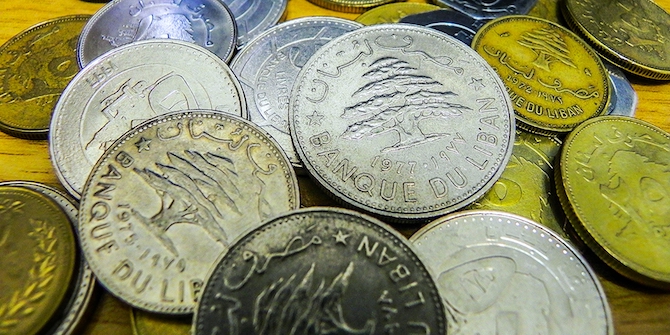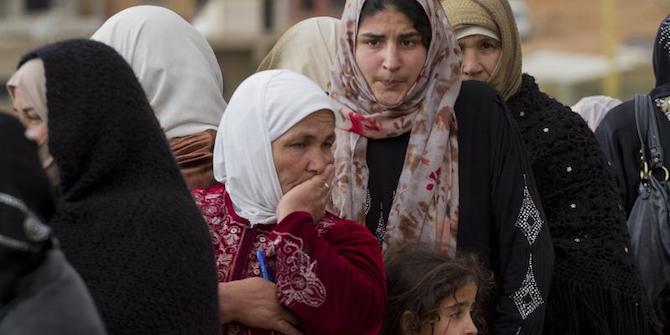by Frederic Chemaly

The Lebanese economy is showing signs of slow recovery. Recently, and for the first time in 12 years, a national budget was approved by the Parliament. It promises to lift the country in various rankings, whether measured by credit ratings, donor funding, stability, outlook, transparency, reforms, or otherwise.
Before that, Lebanon successfully completed its first licensing round for offshore exploration for natural gas. Syria’s reconstruction is also the talk of the town, with Lebanon potentially serving as a base. Both are external factors, one dependent on natural resources and the other on politics.
With a debt/GDP ratio of around 150%, the economy needs to grow to cover that, ideally through economic initiatives that are self-generated and not dependent on external factors, given economic policy is a stated priority for the Lebanese Presidency.
On politics, the context has not been encouraging for the last generation, and unforeseeable events may take place that would hinder the drive for economic reforms. A recent example is the Prime Minister’s unexpected resignation on 4 November 2017. This has shifted the political elite’s priorities from matters such as the licensing of the offshore gas extraction to Total, ENI and Novatek, the 2018 budget, the 2018 spring parliamentary elections, international donors’ conferences, and the appointment of senior public servants; to strictly dealing with this mysterious resignation and soothing the consequent diplomatic tension between Lebanon and Saudi Arabia.
To put things into perspective, Lebanon has shouldered the burden of war and economic crises for more than a generation, and especially during the last 4-5 years the economy has underperformed due to the strain of the refugee crisis and the closed trade routes with Syria.
Tentative initiatives were launched to regain investor confidence, starting with the appointment of the Board of the Tripoli Special Economic Zone (TSEZ) in 2015 after 6 years of stalling, and the initial expansion of the Tripoli Port, to reactivate economic activity in North Lebanon. Initiatives gained traction in 2017 after a national consensus was reached that put an end to the political impasse. Positive developments included the appointments of public servants; successful efforts to launch the oil and gas sector, which was suspended for 4 years but has finally made progress with the licensing round; the entry of the Beirut Municipal Council and the TSEZ to the UN Continental Maritime Silk Road Cities Alliances and consequently putting Lebanon on the One Belt One Road map; the privatisation of the Beirut Stock Exchange; the ratification by the parliament of the Public-Private Partnership law; among other initiatives.
The following five major economic considerations are burning questions for any comprehensive national economic policy. They will need to be addressed by the Lebanese regulator at its different levels, whether the parliament, the government, the ministers, or other sector regulating bodies such as the Central Bank or the Capital Markets Authority (CMA).
- Foreign Direct Investment
Encouraging foreign direct investment is a necessity for any developing economy. Normally, an economy cannot grow without external trade. Extreme examples are closed economies such as China or Albania before the economic reforms of the 1980s. If capital stays within a country, competing companies will be poaching from each other, not from new resources, and will become unviable within a generation of this vicious circle.
So where would the money come from, where would it be invested, and why?
The vast majority of Lebanese businesses are family-owned and managed, undervalued and with scarcely-explored potential. The following is a plausible scenario for raising both the value of companies and government revenues from taxation:
If 100 companies with a turnover of $1 billion each, and a need for capital injection of $100 million, which is a midsized ticket for international multibillion-dollar funds, open up to 20–30% of their capital to foreign investors carefully picked for their strategic or financial added value, the foreign direct investment would total $10 billion and its mid-term return would range between $80 and 100 billion of taxable income.
For this to happen, the Lebanese regulator has to create fiscal, monetary, regulatory and other types of incentives to encourage shareholders of family businesses in Lebanon to open up their capital to foreign direct investment. It would also be necessary to amend the Lebanese Code of Commerce in favour of further opening shareholder structures to foreigners, and to create differential listing regulations for family-owned businesses in the Beirut Stock Exchange to encourage them to list part of their capital.
- Process Outsourcing
Lebanon, considering what it can offer in terms of premises and communications facilities, office technology and automation, people, universities, languages, incorporation conditions, geography and competitive billing, can certainly compete with countries such as India, Poland and Romania in process outsourcing. It may serve, if not the English-speaking world, both the French-speaking and Mediterranean worlds.
The role of the regulator will be prominent here also, as incentives will be needed to encourage major process outsourcing firms to establish their centres in Lebanon, through easing incorporation regulations and providing information security guarantees. In addition, media campaigns targeting process outsourcing firms could help shed light on the ease and benefits of doing business in Lebanon, and encourage them to invest.
- The Beirut Stock Exchange
The Beirut Stock Exchange (BSE) is one of the smallest stock exchanges in the region. Its regulating body, the Capital Markets Authority of Lebanon, is legally bound to have its board chaired by the Governor of the Central Bank. Consequently, the BSE is indirectly following policies set by the Central Bank. The downside of this is that if the Central Bank is conservative with its monetary policies, the BSE will likely mirror this approach in the financial markets, and vice versa. Consequently, a conservative approach to an already mildly active stock exchange would not be attractive to those in search of enticing Initial Public Offerings (IPO), whether major local companies in need of capital to expand their operations, or foreign companies interested to list on the BSE, and able to do so according to the CMA rules.
This suggests three requirements necessary for the revival of a market that has been long dormant:
- Putting the BSE under the authority of the Ministry of Economy and Trade;
- Adopting more liberal trading rules;
- Producing differential listings to encourage varying types of enterprises to list, particularly family businesses (who are often reticent to give up a part of their capital) and startups (who otherwise could not meet the financial requirements to list, however would benefit from the funds they could raise through capital markets).
- Intellectual Property
In 2013, the Central Bank of Lebanon issued Circular 331 whereby all banks operating in Lebanon were incentivised to dedicate 3% of their capital to fund innovative startups. This amounts to approximately $400 million and is intended to transform Lebanon into a regional business hub, with a particular focus on technology. However, any innovation needs to be protected from theft, lest the nascent businesses feel their investment is not secure.
Lebanon is neither party to the Madrid Protocol nor to the Patent Cooperation Treaty (PCT). This puts it at a disadvantage with regards to the long-term benefits of innovation. Even if an idea is generated and funded in Lebanon, when it comes to its realisation, it is exported for registration, production and sale to another country which is member to the Madrid Protocol or the PCT. It then becomes easier for the innovator to conduct business from the country of registration, using its resources and benefitting its economy in return. This goes beyond the startup ecosystem to extend to any mark (either service mark or trademark) or patent invented in Lebanon. For this, the benefits of the Madrid Protocol and the PCT should be weighed (the range of patents eligible for protection could decrease if similar patents are already registered in another country party to the treaties, so this could limit innovation locally) and if profitable, the conventions joined.
- The Lebanese Pharmaceutical Sector
In a $1.16 billion market, locally produced drugs command only 7% market share. Even counting “under license” drugs, the market share of locally-produced drugs only rises to 11%. In neighbouring countries, local pharmaceutical industries have a much more substantial market share: 31% in Saudi Arabia; 40% in Jordan; and 54% in Egypt; with respective governments still setting new policies and procedures to increase the share.
Considering the fact that Lebanon has the high level of technicity and the technological capacity required for the industry (cGMP and ISO), reputable schools of medicine, pharmacy, science and engineering, the technical capacities to cover local and export markets, the proper human and technological resources and the required investments, the weak link remains the absence of protectionist regulations.
It would therefore be prudent to adopt a protectionist approach to locally manufactured drugs (customs and VAT); work on facilitating the registration and export of Lebanese drugs; and involve pharmaceutical industries in discussions regarding patent laws and/or WIPO agreements because of its direct impact on the local pharmaceutical industry.
These economic initiatives are five out of many, but their attractiveness lies in the fact that they are regulation-based, and consequently do not incur considerable costs for an already strained budget. Their effect would be to raise the appetite for investment through an improvement in international rankings and reports, such as credit ratings, the World Bank’s Ease of Doing Business index and others, and would instantly attract media and investors’ curiosity.
 Frederic Chemaly is an adviser in law, governance and business. He is Managing Partner of Chemaly & Company, Corporate Secretary of Malia Group; Board Member at the United Nations Development Programme T2SD Project; Committee Member at the Institute for Finance and Governance – ESA; and a stock markets investor, with a focus on the MENA. He is also a columnist at Aliqtisadi.
Frederic Chemaly is an adviser in law, governance and business. He is Managing Partner of Chemaly & Company, Corporate Secretary of Malia Group; Board Member at the United Nations Development Programme T2SD Project; Committee Member at the Institute for Finance and Governance – ESA; and a stock markets investor, with a focus on the MENA. He is also a columnist at Aliqtisadi.






